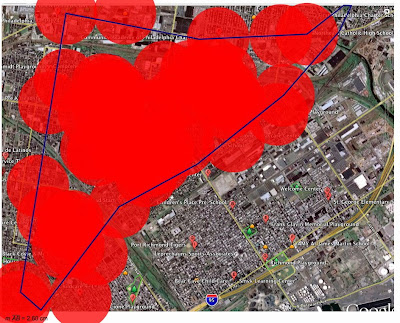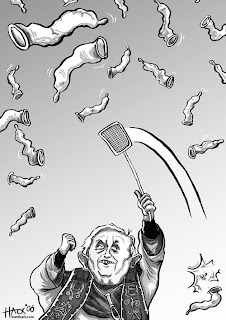On November 20th, 2008, nearly 1,000 AIDS activists around the country
gathered together outside the White House to congratulate President
Obama and call on him to act quickly to fight AIDS at home and abroad
during his first 100 days in office.
We demanded that he focus on providing treatment and care to all
people with HIV, ensure housing is available to all people with HIV,
advance HIV prevention justice, and reform the US global AIDS plan.
Now that the 100 day mark has come and gone, we can reflect on the
positive steps Obama took in his first 100 days in office:
1) Appointing Jeff Crowley to the position of Director of the Office of National AIDS Policy, a
position that remained unfilled in the Bush administration for years.
Crowley's appointment was met with wide support from AIDS activists,
who cited his vast knowledge of Medicare and Medicaid, as well as his
connections to the HIV/AIDS community. Since his appointment, Crowley
has met multiple times with grassroots AIDS activists.
2) Signed a budget that included preliminary funding to develop a national AIDS
strategy.
3) Launching a new prevention campaign, using Web 2.0 technology,
designed to both restore a sense of urgency about fighting AIDS in the
general public and to target groups most at risk for contracting HIV.
4) Repealing the widely condemned global gag rule (which prevented any
organization receiving US government funds from using other funding
sources to discuss abortion as an option) and expanding access to
family planning domestically and globally.
5) Calling in his budget for evidence-based, medically accurate sex
education, in contrast to the failed abstinence-only policies.
6) Appointing Eric Goosby as the Global AIDS Coordinator to oversee
implementation of the $48 billion over five year global AIDS program
reauthorized by Congress last year.
7) Continuing to push for healthcare reform that strengthens Medicare
and Medicaid and provides universal health coverage.
8) Repeatedly emphasized his support of federal funding of syringe
exchange, which would dramatically reduce HIV infections without
increasing rates of drug use.
In spite of all the progress made, Obama made one major misstep. In
his 2010 budget outline, Obama only included a small increase in
funding for foreign assistance. At a time when the poorest in the
world are suffering disproportionately from the global economic
crisis, and given the campaign commitment to double foreign assistance
and provide $50 billion over five years for global AIDS programs,
Obama's budget outline did not include sufficient funding to meet the
needs of people around the world and fulfill his campaign promise.
In the next 100 days, Obama has the opportunity to come through on
more of his campaign pledges, including:
1) Introducing a detailed budget that:
a) lifts the federal funding ban on funding syringe exchange
b) fully funds Housing Opportunities for People with AIDS
c) increases spending on domestic HIV prevention, in line with
the CDC's recommendation that, to cut infection rates in half, we need
to increase spending on prevention by 138%
d) meets our commitment to the Global Fund for AIDS, TB, and
Malaria ($2.7 billion) and bi-lateral US global AIDS programs ($9
billion)
2) Support for ETHA (Early Treatment for HIV/AIDS Act) which is before
the House now and will soon be before the Senate. This bill would
expand Medicaid to cover all people with HIV, not just those who are
already sick with an AIDS diagnosis.
3) A detailed plan for healthcare reform that includes a guarantee
that people with HIV have access to treatment when medically
necessary, and are not forced to wait.
4) A detailed National AIDS Strategy.
5) Reforms the US Global AIDS plan to mitigate the harm of policies
that further marginalize people at high risk of HIV infection,
including drug users and sex workers. Additionally, Obama should
support efforts to train and retain sufficient health workers to meet
the commitments the US government has made to ensure universal access
to HIV prevention, treatment and care worldwide.






